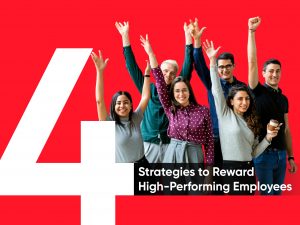Reading Time: 5 minutes
In today’s dynamic and competitive business landscape, organizational success is not solely determined by technical expertise and hard skills. The significance of soft skills cannot be overstated, as they are the glue that holds an organization together and propels it toward long-term success. Soft skills, such as effective communication, emotional intelligence, adaptability, problem-solving, leadership, teamwork, and conflict resolution, foster a positive work environment and drive organizational growth and prosperity. In this blog, we will look more closely at the framework to assess and identify the soft skills that contribute to the success of any organization.
Understanding the Importance of Soft Skills in Organizations
Soft skills surpass technical competence and encompass collaborating, empathizing, and communicating effectively. Soft skills directly impact employee engagement, productivity, and job satisfaction, leading to higher retention rates and a more positive company culture. Moreover, they influence customer satisfaction, as employees with strong, soft skills tend to deliver exceptional service and build meaningful relationships with clients.
Identifying Key Soft Skills for Organizational Success
Identifying key soft skills for organizational success is crucial to building a thriving workplace culture.
Effective communication
Effective communication is a fundamental soft skill that underpins organizational success. It facilitates seamless information flow and collaboration among team members, improving productivity and efficiency.
Employees feel valued, engaged, and motivated in a workplace where effective communication thrives, leading to higher job satisfaction and retention rates. Additionally, strong communication skills are pivotal in building positive relationships with clients, stakeholders, and customers, enhancing the organization’s reputation and market standing.
Promoting effective communication within the organization involves cultivating a culture that prioritizes open dialogue and transparent communication. Leaders should lead by example, encouraging regular team meetings, providing constructive feedback, and fostering an environment where ideas and concerns can be freely shared.
Emotional intelligence
Emotional intelligence is a crucial soft skill that fosters empathy and understanding, enhancing relationships and conflict-resolution capabilities within an organization. When employees feel understood, supported, and valued, they become more engaged and committed to the organization’s mission, leading to increased productivity and reduced turnover rates.
By recognizing and managing their own emotions and those of others, individuals with high emotional intelligence can navigate conflicts more effectively, promoting constructive dialogue and resolution. This emotional awareness creates a positive work environment, ultimately impacting the organization’s bottom line by improving employee retention and fostering a cohesive and harmonious workplace culture.
Adaptability
Adaptability is a vital soft skill that empowers employees to navigate change and embrace innovation, enabling organizations to thrive in dynamic environments. In today’s rapidly evolving business landscape, adaptability is a key factor in an organization’s ability to stay competitive and relevant. By fostering a culture of adaptability, organizations encourage their employees to be open to new ideas, embrace change, and remain flexible in the face of challenges.
This ability to adapt allows organizations to identify emerging opportunities and respond quickly to market shifts, gaining a competitive edge. Furthermore, adaptability is essential in problem-solving, as it enables employees to approach challenges with creativity and resourcefulness.
Problem-solving
Problem-solving is a crucial soft skill that empowers teams to overcome challenges creatively and find innovative solutions. A workforce proficient in problem-solving can drive efficiency, cut costs, and implement strategic improvements, all of which contribute to the organization’s long-term success. By swiftly identifying and addressing issues, adept problem-solvers ensure smooth operations and maximize productivity.
Fostering a culture of continuous improvement, adaptability, and innovation, organizations that prioritize problem-solving skills gain a competitive advantage, enabling them to thrive in an ever-changing and challenging environment.
Leadership
Leadership is a crucial soft skill that inspires and motivates employees, driving them toward shared goals. A strong leadership culture fosters a sense of ownership and responsibility among employees, leading to higher levels of engagement and performance. Effective leaders lead by example, setting a positive tone and vision for the entire team. They empower employees to unleash their full potential, fostering teamwork, communication, and creativity.
In a leadership-driven environment, employees feel valued and supported, resulting in enhanced productivity and collaboration. Moreover, strong leadership facilitates effective decision-making and strategic planning, positioning the organization for long-term success and growth. Overall, leadership is instrumental in creating a thriving and high-performing organizational culture.
Teamwork
Teamwork is a fundamental soft skill that fosters synergy and creates a cohesive work environment. When employees collaborate effectively, they combine their diverse skills and perspectives, leading to greater creativity and problem-solving capabilities. A collaborative setting nurtures trust and respect among team members, encouraging open communication and a willingness to share ideas.
This atmosphere of mutual support results in improved efficiency and innovative thinking, as individuals feel empowered to contribute their best efforts. Ultimately, a team that excels in teamwork experiences higher job satisfaction, as everyone feels valued and part of a unified mission, driving the organization towards success.
Conflict resolution skills
Conflict resolution skills are essential soft skills that ensure conflicts are managed constructively within an organization. Employees can prevent unnecessary disruptions and animosity by addressing disputes respectfully and fairly.
A workplace that prioritizes effective conflict resolution maintains a positive work environment where open communication and understanding prevail.
Developing Soft Skill Metrics
To effectively assess soft skills, organizations should establish quantifiable metrics. Organizations can gauge progress, identify trends, and make data-driven decisions to improve their workforce’s soft skill proficiency by measuring soft skill development over time.
Observing Soft Skills in Action
In addition to assessments, observing soft skills in real-life scenarios is equally crucial. Encouraging managers and supervisors to document instances of exemplary soft skill utilization during team meetings, client interactions, and problem-solving sessions helps identify and reward employees who consistently exhibit strong soft skills.
Real-life observations provide a holistic view of an employee’s soft skill proficiency. They offer opportunities for feedback and recognition, reinforcing positive behavior and fostering a culture that values soft skills. Organizations can create recognition programs to celebrate employees demonstrating outstanding soft skills, encouraging others to develop these essential traits.
Training and Development Initiatives
Investing in soft skill training and development programs for employees at all levels is paramount. By providing opportunities for skill enhancement, organizations can nurture a culture of continuous learning, strengthen soft skill proficiency, and enhance overall organizational performance.
Training programs should be designed to address the specific soft skill needs of different departments and job roles. For instance, customer-facing teams may benefit from effective communication and emotional intelligence training, while managers may require leadership and conflict resolution training.
Additionally, organizations can leverage internal resources or partner with external training providers to deliver customized workshops, webinars, and coaching sessions. Interactive and experiential learning experiences, such as role-playing and group activities, can foster engagement and active participation, leading to a deeper understanding and practical application of soft skills.
By embracing and implementing this comprehensive framework, organizations can enhance their workforce’s soft skill proficiency, foster a positive and collaborative work environment, and ultimately drive long-term success in an ever-evolving business landscape. As soft skills continue to gain recognition as essential drivers of success, organizations that prioritize their development will undoubtedly thrive in an increasingly competitive and interconnected world. To learn more, visit us.











